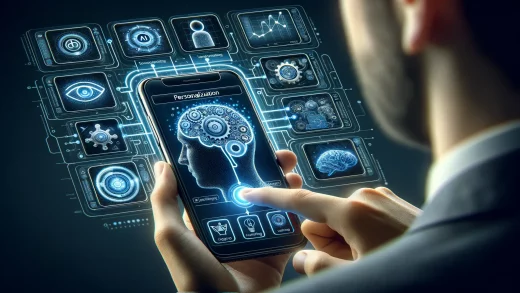Introduction to AI in Education Apps
Have you ever wondered how a simple tap on your phone can transport you into a world of endless learning? The magic behind this transformation is none other than Artificial Intelligence (AI). Picture this: AI in education apps isn’t just a trendy buzzword—it’s like having a personalized tutor, tireless assistant, and tech wizard all rolled into one, right in your pocket! From dissecting complex equations to helping you master new languages with immersive exercises, AI is redefining how we learn, connect, and grow.
What Makes AI the Star Player in Education?
It’s not just the cool factor; AI shines because of its ability to adapt and personalize. Imagine struggling with algebra—an app powered by AI doesn’t just give you generic tips. It studies *how* you learn—your pace, patterns, even where you make mistakes—and adjusts its lessons like a tailor sewing a suit made just for you. Suddenly, abstract concepts feel tangible.
Plus, AI goes beyond just academics:
- 24/7 access: Your digital advisor never sleeps! Stuck at 2 a.m.? No problem.
- Language barriers shattered: Build fluency faster with real-time feedback.
- Instant engagement: Through gamification, quizzes, and interactive tools, AI keeps you hungry for more.
More Than Just Algorithms
Sure, AI runs on numbers and data, but its potential feels almost human. It fosters creativity by enabling students to dive deep into topics they might have skipped in a crowded classroom. Take an art student, for instance—AI can analyze style preferences and suggest techniques to enhance their craft. Instead of feeling boxed in, learners feel empowered to explore their unique paths.
This isn’t distant, sci-fi tech—it’s already revolutionizing education for millions. So, what’s stopping you from embracing it?
Key Applications of AI in Transforming Learning
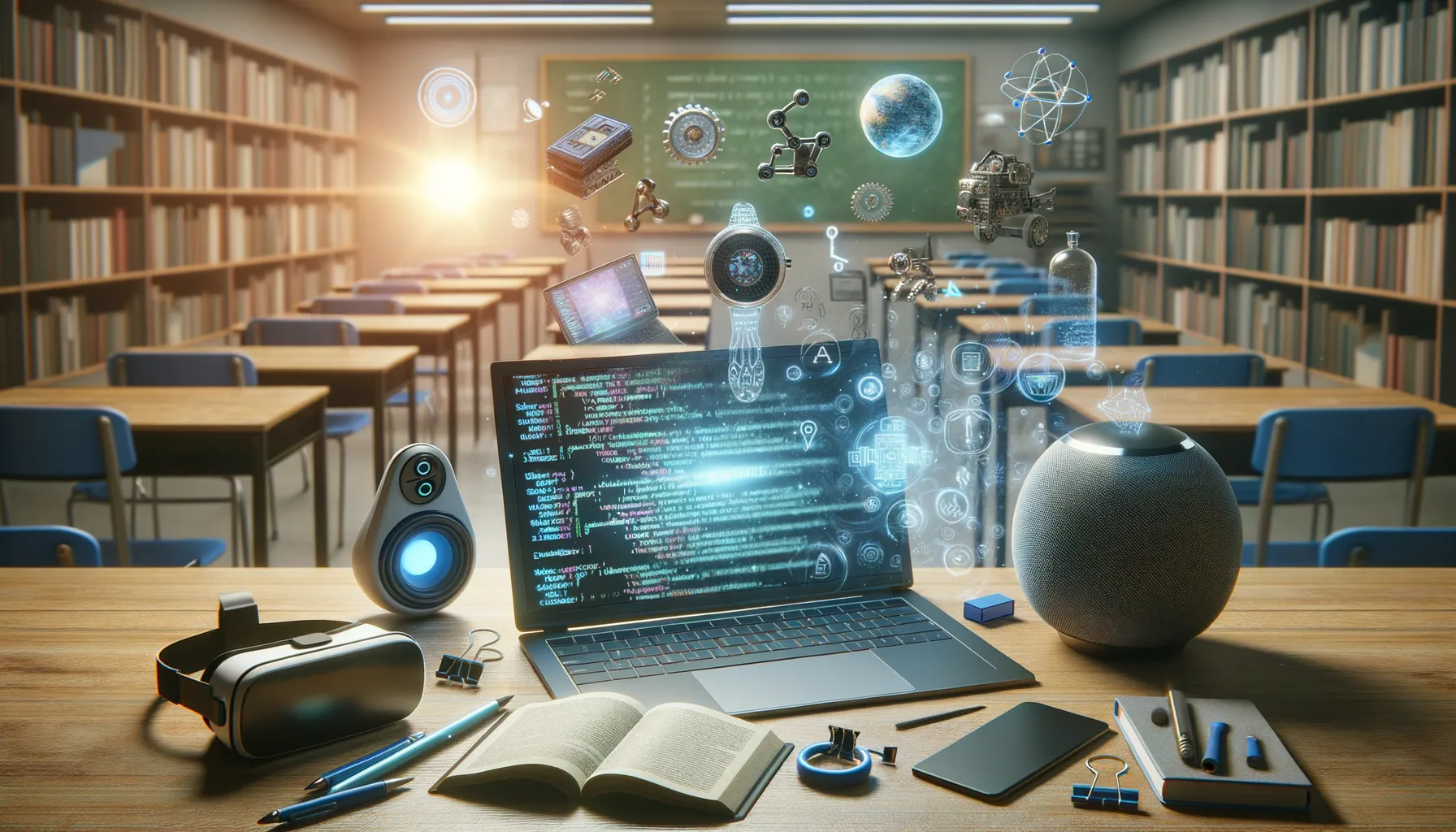
Personalized Learning at Your Fingertips
Imagine a classroom built just for you, where every lesson feels like it’s designed to match your pace, your strengths, and even your quirks. That’s exactly what AI-powered education apps bring to life. Through advanced algorithms and data analysis, these tools craft tailor-made learning experiences. Struggling with fractions? The app notices and offers extra practice, complete with fun visuals. Breezing through biology? It adjusts by introducing more challenging content to keep you engaged.
Language learning apps like Duolingo even “talk” to you, analyzing pronunciation in real-time and giving instant feedback. This isn’t just tech helping you learn—it’s tech learning about *you*.
- Interactive tutorials: AI adapts course materials to your progress.
- Gamified quizzes: Turning dry lessons into exciting challenges that you actually look forward to.
A New Kind of Mentor
Think of AI as the ultimate teaching assistant. It’s available 24/7, doesn’t get tired, and always has the patience of a saint. Have a midnight question about your calculus homework? AI-driven chatbots like those used by Khan Academy are ready to help. Plus, they’re skilled at breaking down complex topics into bite-sized, digestible bits.
And let’s not forget how AI is reshaping assessments. No more waiting ages for test results—AI grades papers in seconds, offering insightful feedback that goes far beyond just marking answers right or wrong. Whether it’s tracking your progress over months or spotting patterns in your mistakes, AI acts as a guide, steering you closer to success with each interaction.
Benefits of AI for Students and Educators
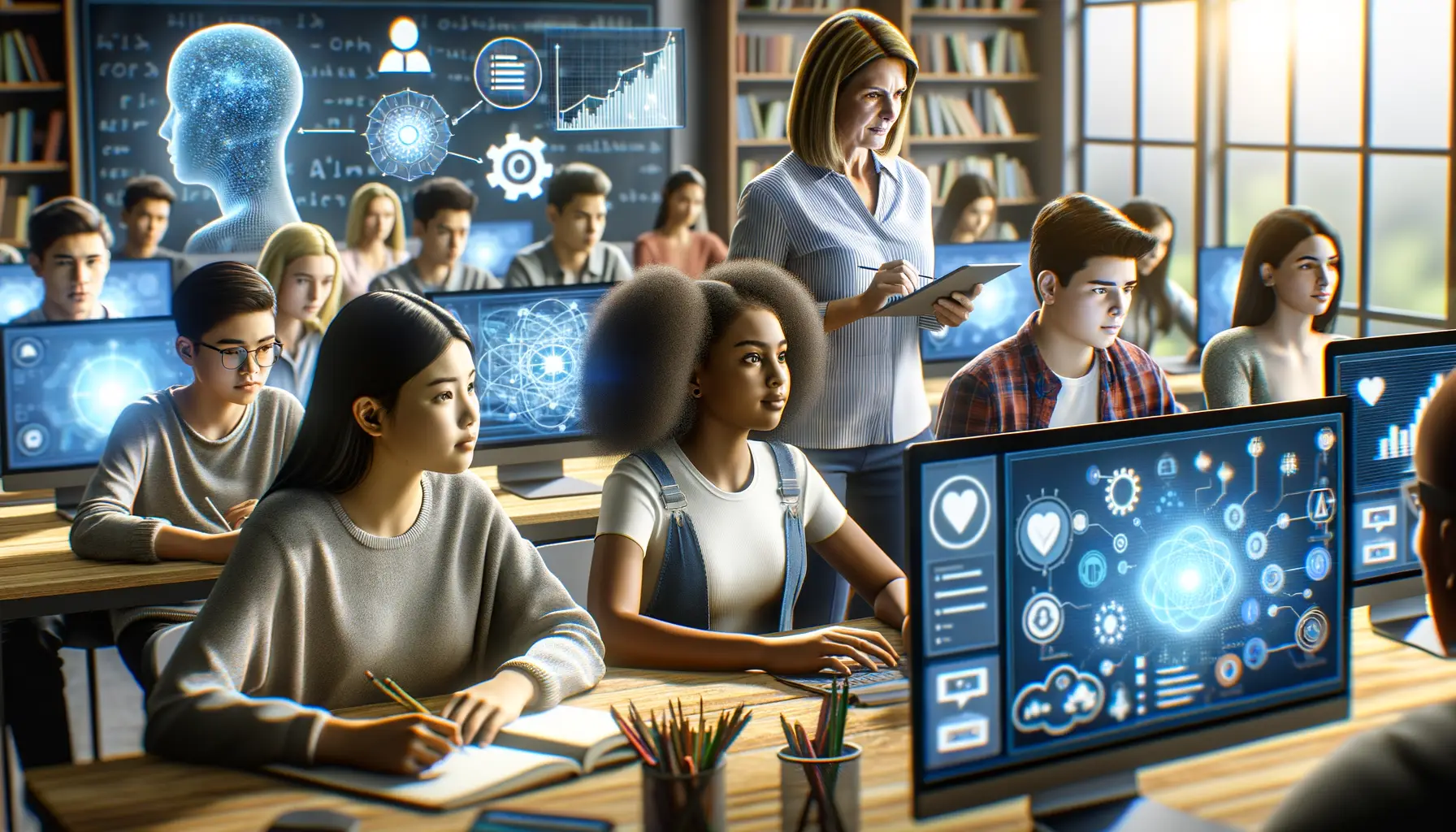
How AI is Revolutionizing the Way Students Learn
Imagine cracking open the secrets of calculus or mastering a foreign language, all with a personal tutor who never runs out of patience or energy. That’s what AI-powered education apps bring to the table for students. They’re like having a 24/7 coach in your pocket—ready whenever inspiration (or confusion) strikes.
With tools like adaptive learning, AI tailors lessons to your unique pace and style. Struggling with quadratic equations? It slows down, breaks things into bite-sized chunks, and offers new examples until you nail it. Flying through history topics? It skips ahead, pushing you further without wasting a minute.
Here’s how AI benefits students:
- Instant feedback: Forget waiting days for your teacher’s comments! AI analyzes your work in seconds, helping you fix mistakes on the go.
- Enhanced accessibility: Students with disabilities can thrive thanks to voice recognition, text-to-speech tools, and personalized interfaces.
Empowering Educators with Smarter Tools
For teachers, AI isn’t just a tech buzzword—it’s a lifesaver. Remember those late nights spent grading stacks of papers? AI tools take over repetitive tasks like assessment, letting educators focus on what truly matters: inspiring young minds.
Better yet, AI can analyze data from classroom interactions to spot trends. Is the whole class stuck on fractions? AI flags it before frustration sets in. Need creative ideas for engaging lessons? Smart apps suggest interactive projects, quizzes, and even real-world examples tailored to students’ interests.
By working hand-in-hand with AI, educators can shift their energy to fostering curiosity, guiding discussions, and sparking those unforgettable “aha!” moments. It’s not about replacing teachers—it’s about giving them superpowers.
Challenges and Ethical Considerations in AI Adoption
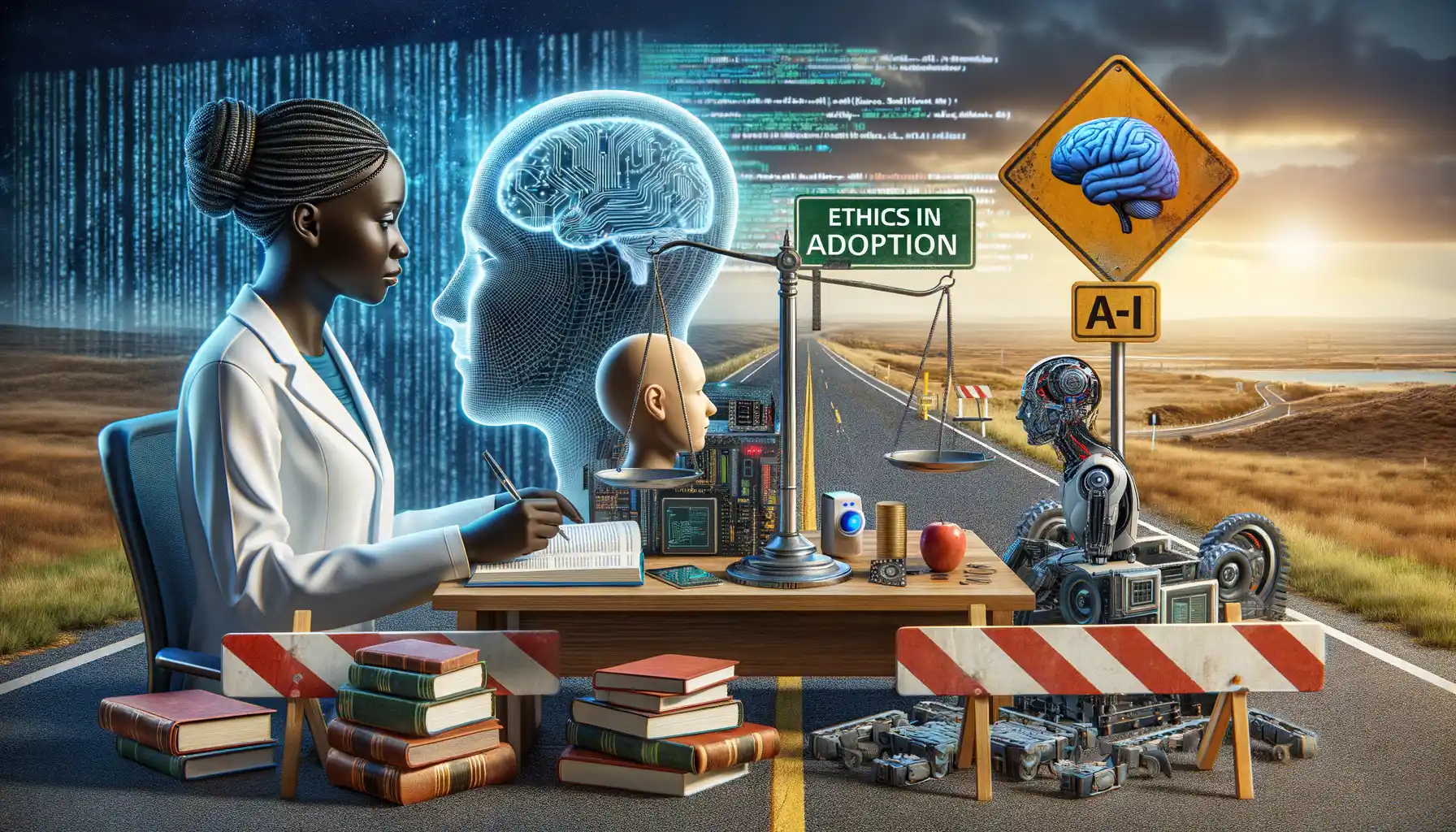
Walking the Tightrope of AI Implementation
Adopting AI in education isn’t all smooth sailing—it’s more like carefully balancing on a tightrope, trying to stay innovative while avoiding pitfalls. One major challenge lies in the intricate dance of collecting and using data. Sure, AI relies on heaps of information to work its magic, but here’s the catch: how do you ensure that student data is kept private and secure? A single breach could shatter trust in seconds.
Then there’s the issue of bias. Algorithms might be clever, but they’re not immune to inheriting human prejudice. Imagine an AI suggesting learning resources but unintentionally prioritizing content that subtly favors one demographic over another. It’s like trying to teach fairness with weighted dice—hardly ideal for fostering an inclusive educational environment.
When Ethics Take the Spotlight
Ethics isn’t just a side quest in AI adoption—it’s the main event. Developers and educators must grapple with vital questions about accountability:
- If an AI tool misguides students with incorrect information, who takes responsibility?
- Are algorithms nudging students toward genuine learning or merely parroting pre-programmed pathways?
And let’s not forget about accessibility. While some schools boast cutting-edge AI tools, others barely have enough bandwidth to load a web page. The result? A growing gulf between tech-savvy institutions and underfunded ones—a gap that education should aim to close, not widen.
Future Trends of AI in Education Technology
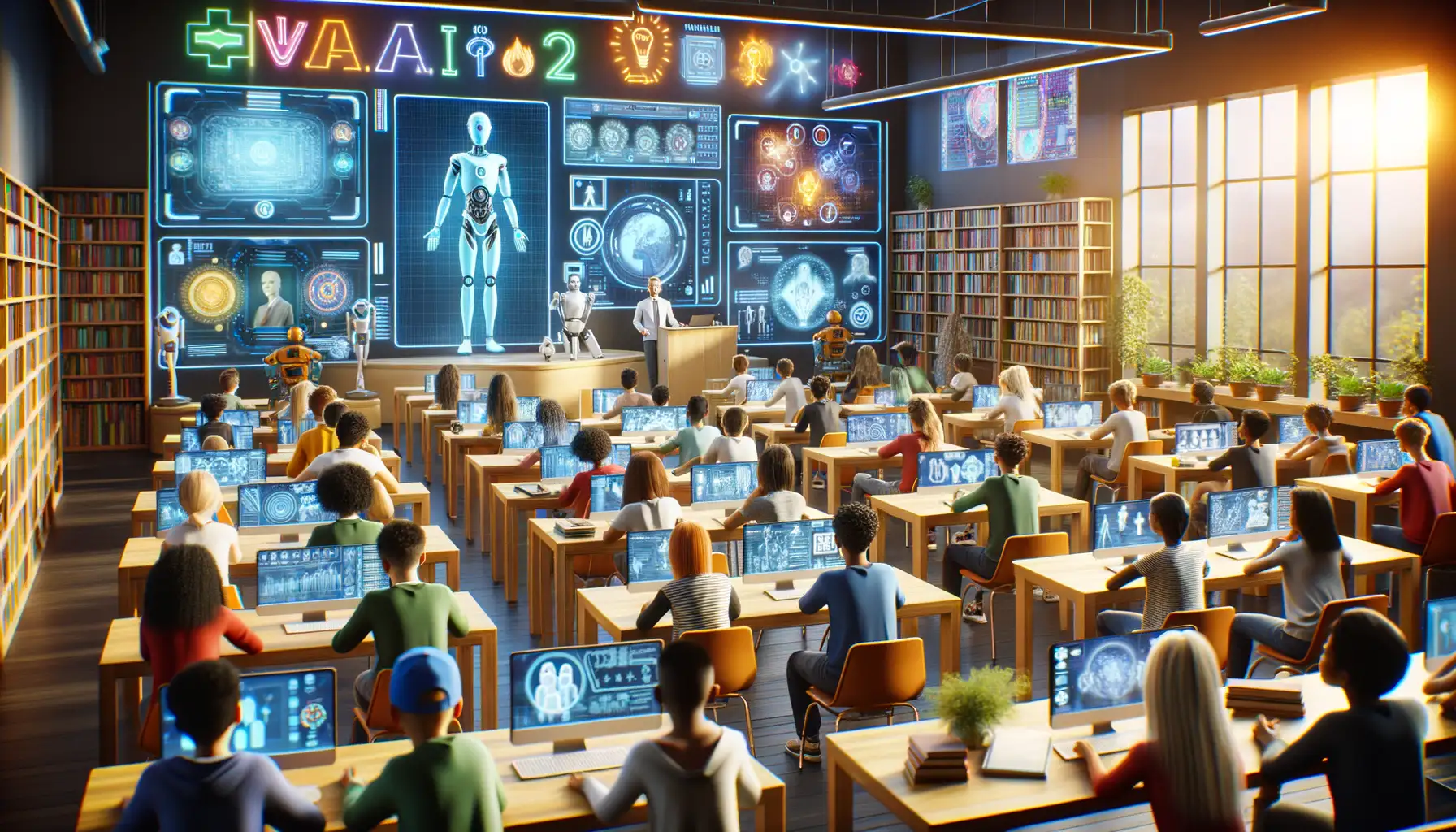
AI-Powered Personal Tutors and Beyond
Imagine having a teacher who’s available 24/7, knows exactly where you struggle, and provides just the right resources to help you succeed. That’s the future of AI in education! With advancements in machine learning, personalized learning paths are becoming more intuitive. AI-powered apps will adapt to every student’s unique pace, whether they’re racing ahead or taking their time with complex concepts.
We’re also looking at tools that go beyond just delivering lessons. Future AI systems could simulate real-world scenarios — think of a history app throwing you into an ancient civilization or a physics app letting you “build” a virtual rocket. The line between gaming and learning? Soon, it might disappear entirely.
- Emotion detection features could analyze facial expressions or tone of voice to gauge frustration or excitement, tailoring support accordingly.
- Imagine breaking language barriers through real-time multilingual support during live classes!
Collaborative Classrooms Fueled by AI
AI won’t just cater to individuals; it’ll transform whole classrooms. Picture intelligent dashboards that help teachers track collective progress in real time, showing which concepts need reteaching. Or automated group projects where bots assign roles based on each student’s strengths. It’s teamwork reimagined with a technological twist!
And let’s not forget lifelong learners. As AI integrates with platforms for professional development, imagine courses evolving alongside industries, always keeping adults one step ahead in their careers.

